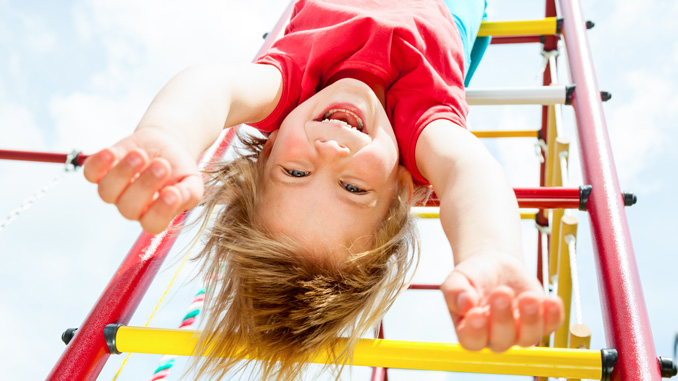
At two years old my youngest niece stood on top of a high table and announced loudly, “I’m going to jump!” At the park, my son climbs on the outside of the high drawbridge instead of inside of it. I’ve seen other parents cringe in their presence—they just don’t know what it’s like to raise a daredevil.
My gut reaction, at least at first, was to stop the crazy-making behavior all at once. I found myself constantly saying, “Don’t do that!” and “Get down from there!” It didn’t seem to help much, and I think that’s because “a daredevil” is simply who my kid is. So how do I let him be him while also instilling a sense of self preservation into his 5-year-old body?
Instead of trying to tame him, I decided to find safe outlets that provided the fun and excitement he was looking for. I put him in rock-climbing classes (where I held my breath the first time he climbed to the top of a 50-foot wall, which was also his first day) and ski lessons. I started letting him climb the play structures at the park, but was careful to suggest riding his bike there as often as possible so I could “forget” to take his helmet off. I also started evaluating the true danger of a situation and letting him go with anything that would simply result in a skinned knee.
The result was less of me telling him what not to do and more of him having fun that looked at least a few modicums safer than the fun he was having before.
Tips From an Expert
- Stop saying no.
“It’s a much better idea to try to express to
[children]what we are looking for whether than what we are not looking for,” suggests Jeremy Sinclair, a school counselor at Venture Academy in Stockton.
When you consistently use words such as “No” and phrases like “Don’t do that,” they lose power.
2) Consider intentions.
Jeremy says parents should always have a child’s intentions in mind and try to meet those intentions in a safer way. For example, if the goal is to do something exciting, find an exciting activity that presents less danger.
3) Accept that not all children are the same.
Siblings may not act the same, and they likely will need to be parented differently. “Keep in perspective that these children are individuals,” Jeremy says. “Every kid is a new adventure… and they will pose different challenges and joys for us.”

